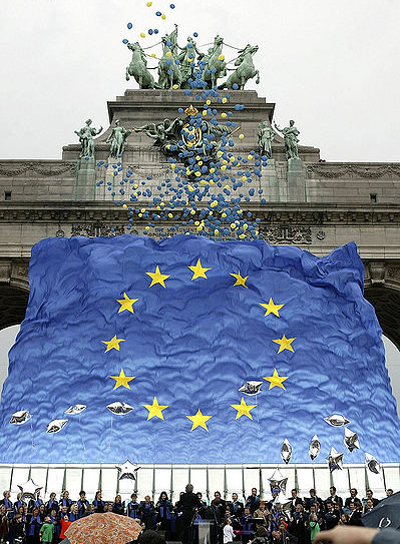europe
In an East-greets-West gesture of cultural diplomacy,19 EU member countries have submitted a film each for this touring festival, which will visit other seven Indian cities from March to May this year.
France’s ambassador to Israel presented data yesterday showing a 45 percent drop in anti-Semitic incidents in his country during 2010. Cristophe Bigot attributed the year-over-year drop to a sharp rise in 2009 in the wake of Operation Cast Lead.
Speaking after 6th meeting of the Turkey-USA Economic Partnership Commission held in Washington D.C., Foreign Ministry deputy undersecretary Selim Yenel, responsible for bilateral relations and public diplomacy, said, "we discussed technical assistance of the United States to make Istanbul a center of finance on the global scale...

How should Europe present itself in this age of smart power and public diplomacy? I suggest three images that Europe could strive to promote to foreign audiences, especially the US.
Journalists in Turkey marched in protest on Friday after police arrested 10 reporters and writers, detentions that prompted the European Commission to warn the EU candidate country over its democratic credentials.
A group of experts and political figures who have been involved in the Northern Ireland and Cyprus peace processes is visiting Baku. I am part of this group as an expert from Cyprus. We will be attending a series of round-table meetings together with Azerbaijani experts and politicians.
On March 3, Judith McHale, Under Secretary for Public Diplomacy and Public Affairs at the U.S. Department of State, and Ambassador Mikhail Shvydkoy, Special Representative of the Russian President for International Cultural Cooperation, will launch a dialogue between Russian and American media professionals as part of the U.S.-Russia Presidential Commission.
A new poll shows that 81 percent of the French think France’s importance on the international stage is declining. After a widely criticised reaction to uprisings in the Arab world, the survey is the latest bit of bad news for French diplomacy.







